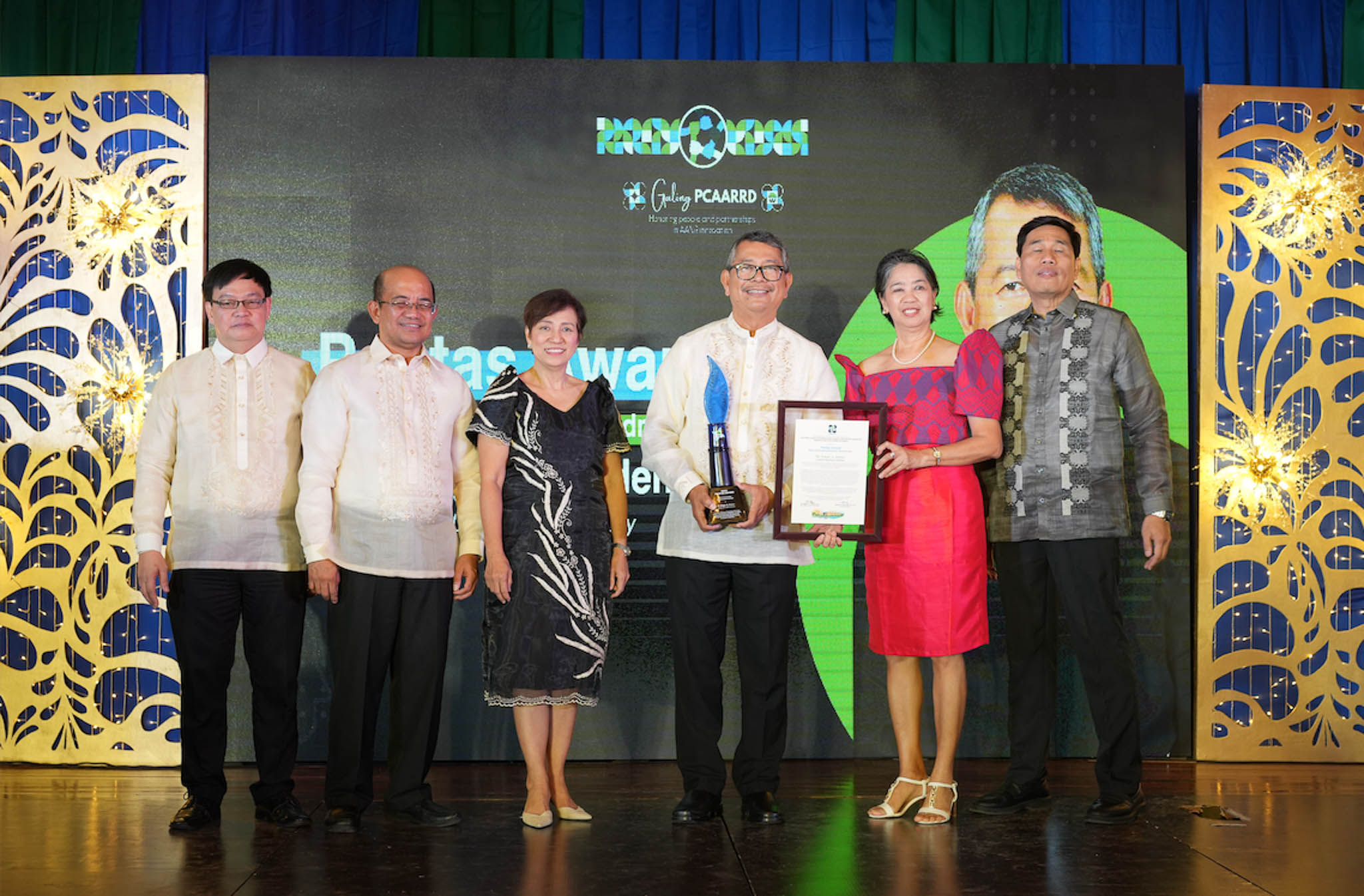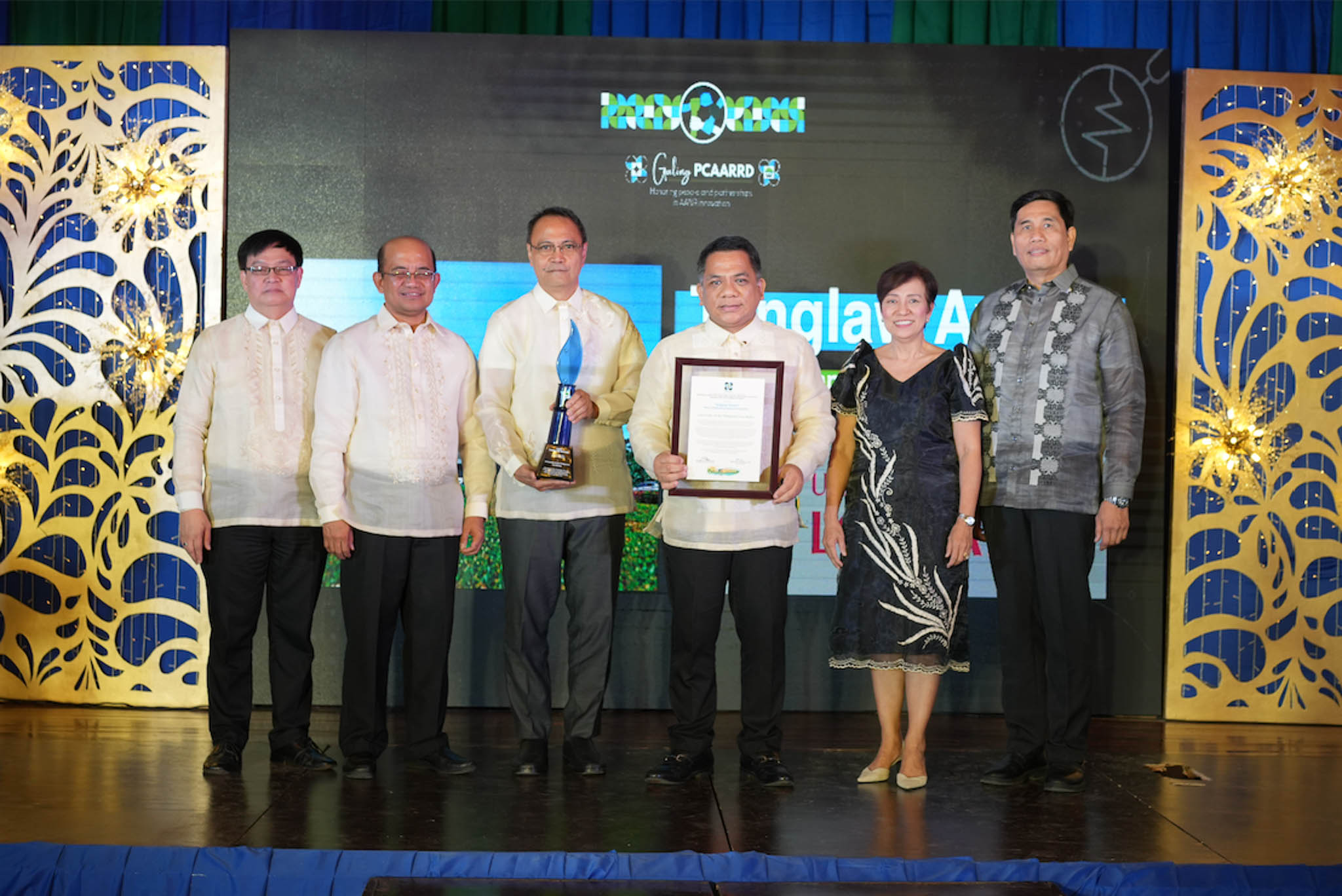The Philippine Council for Agriculture, Aquatic and Natural Resources Research and Development of the Department of Science and Technology (DOST-PCAARRD) once again highlights the significant contributions of its partners in fostering innovation in the agriculture, aquatic, and natural resources (AANR) sector with the Council’s Pantas and Tanglaw Awards.
As an annual tradition of the Council, the Pantas Award is given to outstanding scientists/researchers and research administrators who have greatly contributed to the advancement of the AANR development in the country. Meanwhile, the Tanglaw Award recognizes local institutions, agencies, and organizations that have made substantial contributions to the advancement of the AANR sector within the country.
Pantas Award
The Pantas Award takes its inspiration from the Filipino term for sages and scholars. Consequently, the award is bestowed upon individuals who exhibit excellence in research and development in the field of AANR. In recognition of her game-changing biofertilizers, Dr. Nelly S. Aggangan from the National Institute of Molecular Biology and Biotechnology (BIOTECH) at the University of the Philippines Los Baños (UPLB) is named the 2023 Pantas Awardee as Most Outstanding Researcher/Scientist.
Dr. Aggangan's research on mycorrhizal fungi associated with plants thriving in challenging environments offered a sustainable alternative to costly inorganic chemical fertilizers for reforestation; enhanced crop production by improving growth and yields in unproductive agricultural soil; and restored soil productivity and long-term sustainability. She developed the Marinduque bioremediation protocol (MBP), which played a pivotal role in rejuvenating a three-decade abandoned mining site into a vibrant and healthy forest and in mitigating heavy metal contamination in agriculture and marine ecosystems, as well as across air, water, soil, and food chains.

Dr. Nelly S. Aggangan, recipient of the 2023 Pantas Award as Most Outstanding Researcher/Scientist. (Image credit: ACD, DOST-PCAARRD)
In light of his excellent leadership in research, development, and extension at the Central Luzon State University (CLSU) and the Central Luzon Agriculture, Aquatic and Natural Resources Research and Development Consortium (CLAARRDEC), Dr. Edgar A. Orden is given the Pantas Award for Most Outstanding Research Administrator.

Dr. Edgar A. Orden, recipient of the 2023 Pantas Award as Most Outstanding Research Administrator. (Image credit: ACD, DOST-PCAARRD)
As the President of CLSU, he inspired the university to realize its vision of becoming a national leader in the agri-fisheries industry through continual innovation in research and development. He harnessed the university's full potential as a catalyst for development within the country, particularly benefiting farming communities. Through his excellent stewardship, 112 significant technologies to improve the productivity of AANR were developed; 141 employments from the incubation and acceleration program were generated with a total revenue of ₱24 M; and more than ₱1.5 B was generated from external funding. His flagship program, the Technology Village Program (TVP) in Talavera and the Science City of Munoz, Nueva Ecija, improved the lives of the people in these communities through agripreneurship. As the Director of the Small Ruminant Center, he spearheaded the development of locally-, regionally-, and nationally-tailored, cutting-edge technologies to meet the specific demands of the goat and sheep industry.
Tanglaw Award
‘Tanglaw’ is a Filipino term used to reference light that illuminates dark paths. As such, Tanglaw Awardees are recognized for their contribution to strengthening research institutions and helping foster the growth of AANR innovations in the Philippines. This year’s Tanglaw Awardee for Most Outstanding Research Institution is University of the Philippines Los Banos (UPLB).
UPLB showcased an unwavering commitment to channeling public trust and resources into innovative AANR R&D through steady technology development; knowledge creation; and partnerships toward food security, improved nutrition, smart and future-proof agriculture, environmental protection, policy support, and community development.

UPLB Chancellor Jose V. Camacho, Jr. represents UPLB for the 2023 Tanglaw Award as Most Outstanding Research Institution. (Image credit: ACD, DOST-PCAARRD)
For the past five years, it was able to generate a research budget of more than P4.2 B, implement 2,833 R&D projects, and produce over 500 technologies/significant information from needs-based research. The university has developed affordable farming inputs, disease-resilient plant varieties, measures to address food insecurity, technologies for pest detection and management, and systems for the documentation and conservation of biological resources. Their smart technologies played a crucial role in improving farmers' livelihoods by helping them make improved decisions, thereby reducing crop losses and improving crop yields and income, as well as fostering greater sustainability in the country’s agriculture.

